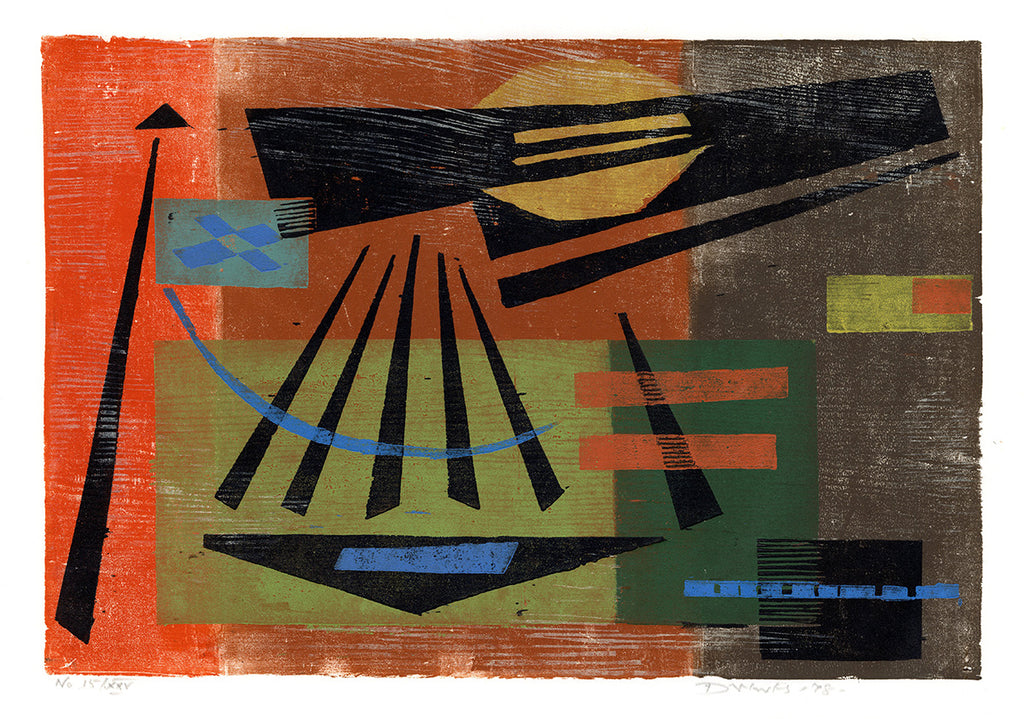 Sold
Sold
Summer Heat
DREWES, Werner
Color woodcut on Japanese paper, 1978.Reference: Rose 370.Edition of 25.Signed, numbered and dated in pencil.
Born in Canig, Germany (now Kaniów, Poland) to a Lutheran pastor and his wife, Werner Drewes (American, 1899-1985) is considered one of the founding fathers of American Abstraction by introducing the concepts of the Bauhaus to the United States. Although his family was hoping his artistic leanings would lead him to a career in architecture, Drewes was drawn to visual art and the new wave of abstraction that was emerging in artistic circles. After serving in the German army in World War I, he traveled and created art, most notably at the famous Bauhaus School. Drewes accrued an impressive list of colleagues and friends, including Paul Klee, László Moholy-Nagy, and Wassily Kandinsky. The rise of Nazism and accompanying disdain for abstract art, Drewes moved to New York City in 1930. Continuing his friendship and mentorship with Kandinsky, Drewes immediately immersed himself in the artistic circles of New York and was widely exhibited by public institutions and private galleries.
Werner Drewes’ abstraction was influenced by his travels and his artistic comrades. His work was grounded in reality and had more natural forms than many of his famous contemporaries. His prints also embraced Bauhaus brutalism, abstractionists’ color, and repetition of shapes and patterns.
He became an American citizen and participated in many artistic organizations such as the American Artists’ Congress, American Abstract Artists, and creating prints for the Graphic Arts Division of the WPA Federal Art Project. His collective spirit and gift for bringing people together drew him to teaching. He taught at numerous institutions, including Columbia University, Brooklyn College, Chicago’s Institute of Design, Washington University in St. Louis and more.
 Sold
Sold
Color woodcut on Japanese paper, 1978.Reference: Rose 370.Edition of 25.Signed, numbered and dated in pencil.
Please sign up for our newsletter
Email: info@armstrongfineart.com
Phone: 773-887-6776
1200 West 35th Street, #186
Chicago, IL 60609
Copyright © 2026 Armstrong Fine Art.
Development by Alo Agency. Powered by Shopify
